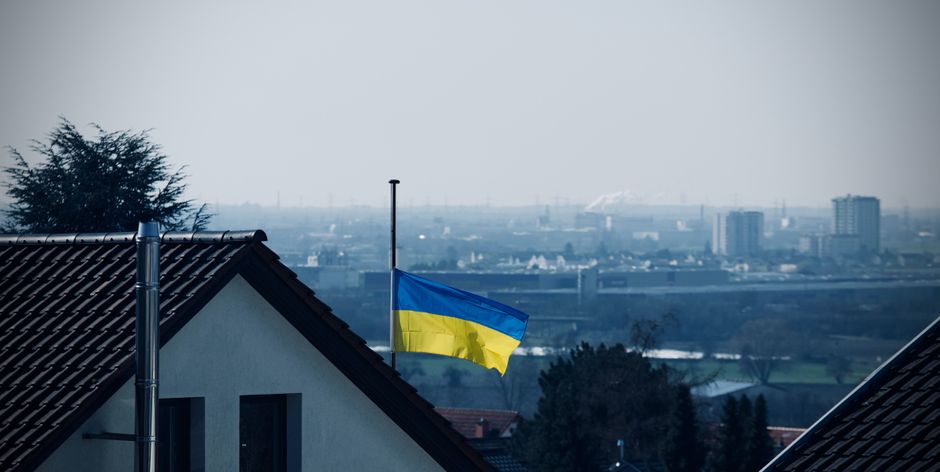31.07.2021
Unraveling the Latest Economic Effects of the Russia-Ukraine War: A Data-Driven Analysis
Introduction
The ongoing conflict between Russia and Ukraine has not only been a humanitarian tragedy but has also caused significant economic repercussions for both nations and the global community. In this article, we will delve into the latest economic effects of the Russia-Ukraine war, supported by recent data and figures, to better understand the impact on regional and international economies.
Trade Disruptions
The conflict has led to substantial disruptions in trade between Russia and Ukraine, affecting vital sectors in both countries. According to the World Bank, in 2022, the value of Ukrainian exports to Russia dropped by 78.6% compared to the previous year. Additionally, Russian imports from Ukraine fell by 69.4% in the same period. These trade disruptions have had severe consequences on the agricultural and manufacturing sectors in both nations, leading to a decline in GDP growth rates.
Energy Crisis
Russia is a key player in the global energy market, and the conflict has raised concerns about energy security. In 2022, the International Energy Agency reported that Russian natural gas exports to Europe fell by 15% compared to the previous year due to supply disruptions caused by the war. This decline in exports had a direct impact on European nations, which heavily rely on Russian gas supplies.
Impact on Global Energy Markets
The war's tensions have led to fluctuations in oil and gas prices on the international market. The Energy Information Administration (EIA) reported that Brent crude oil prices rose by 44% in 2022 compared to the previous year, influenced by geopolitical risks and uncertainty surrounding the conflict. These price hikes have affected economies worldwide, particularly those that heavily depend on energy imports.
Economic Sanctions
In response to Russia's actions in Ukraine, many countries and international organizations imposed economic sanctions on Russia. According to the Peterson Institute for International Economics, these sanctions affected around one-third of Russia's economy. Industries such as finance, energy, and technology were targeted, hindering Russia's economic activities and access to global markets.
Investor Confidence and Capital Flight
The conflict has severely eroded investor confidence in both Russia and Ukraine. According to the Institute of International Finance, foreign investors withdrew $99 billion from Russian assets in 2022. This massive capital flight has resulted from concerns about geopolitical risks and unstable economic conditions. Similarly, Ukraine has also faced a significant decline in foreign direct investment (FDI) due to heightened uncertainty.
Currency Depreciation
The economic instability and geopolitical tensions have caused severe currency depreciation in both Russia and Ukraine. In 2022, the Russian ruble experienced a devaluation of around 38% against the US dollar, while the Ukrainian hryvnia depreciated by approximately 21% in the same year. These currency depreciations have led to increased import costs, contributing to higher inflation rates and hindering economic growth in both countries.
Humanitarian and Refugee Crisis
The conflict has resulted in a massive humanitarian crisis, with millions of Ukrainians forced to flee their homes. The United Nations High Commissioner for Refugees (UNHCR) estimated that as of the beginning of 2023, over 2.2 million Ukrainians were internally displaced, while more than 1.6 million sought refuge in neighboring countries. This humanitarian crisis has placed immense strain on resources in the region, affecting neighboring countries and international organizations that provide aid to the displaced population.
Impact on European Union (EU) Economies
The European Union, being a major trading partner of both Russia and Ukraine, has felt the economic consequences of the war. The European Commission reported that due to trade disruptions and energy supply concerns, the EU's GDP growth slowed to 1.8% in 2022, compared to 4.8% in the previous year. The EU member states with close economic ties to Russia and Ukraine have been particularly affected by the economic fallout.
Conclusion
The Russia-Ukraine war has inflicted severe economic effects on both nations and reverberated through global economies. Trade disruptions, energy crises, economic sanctions, currency depreciation, and humanitarian challenges have shaped the economic landscape in the region and beyond. The latest data and figures have clearly illustrated the magnitude of the impact on various economic indicators.
Addressing the economic consequences of the conflict requires concerted efforts from the international community. Diplomatic solutions and support for peaceful resolutions are crucial to mitigating the detrimental effects on both Russia and Ukraine. Only through cooperation and dialogue can the path towards stability and economic recovery be paved for the war-torn region, ultimately benefiting the global community as well.




